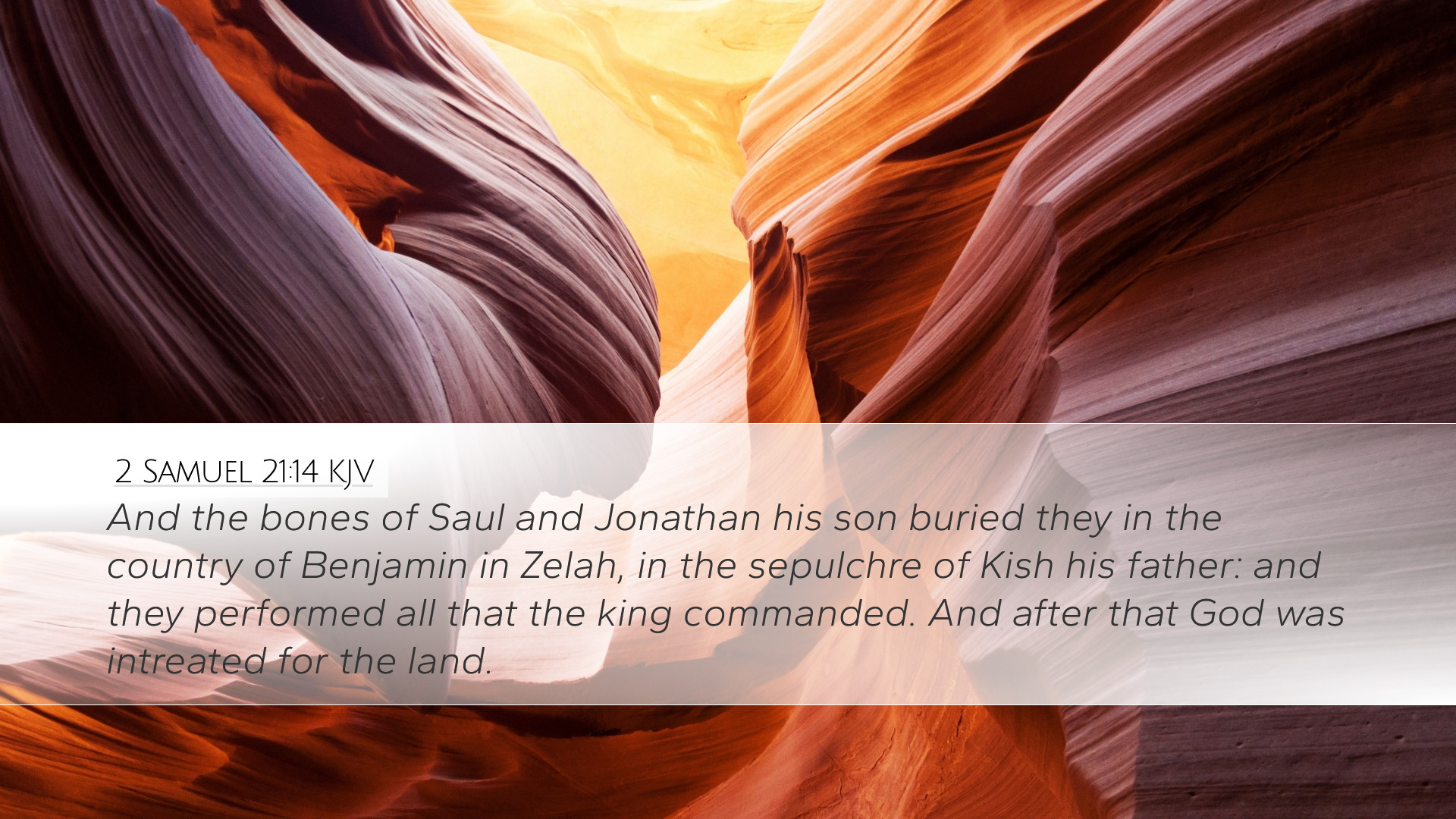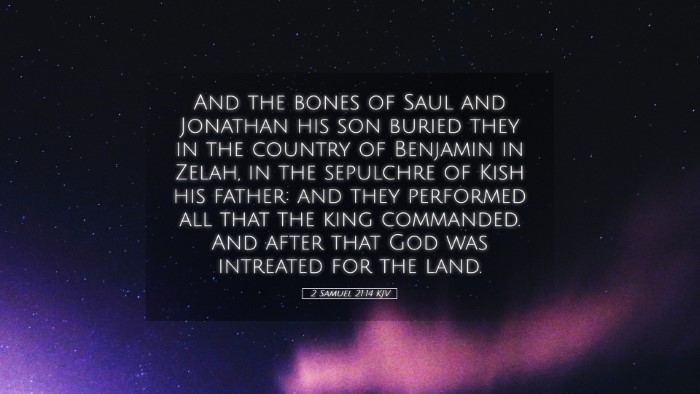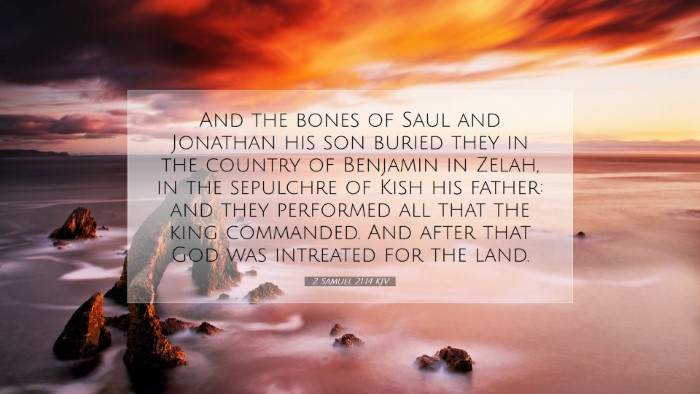Commentary on 2 Samuel 21:14
Verse Text: "And they buried the bones of Saul and Jonathan his son in the country of Benjamin in Zela, in the sepulchre of Kish his father: and they performed all that the king commanded. And after that God was entreated for the land."
Contextual Overview
The passage of 2 Samuel 21:14 occurs after a time of famine in Israel, which was deeply impactful for the nation, leading David to seek God's guidance. This verse contains a summary of actions taken to honor the deceased King Saul and his son Jonathan.
Insights from Public Domain Commentaries
From Matthew Henry
Henry emphasizes the significance of burial practices in ancient Israel, particularly the importance of respectful interment. He notes that the burial of King Saul and Jonathan in their familial sepulchre is not merely an act of finality but a restoration of honor to a fallen house.
- Respect for the Dead: Henry points out that David’s actions reflect a deep respect for those who had served and fallen, despite Saul's failures as king.
- National Reconciliation: David's retrieval and burial of their remains is positioned as an act that facilitates reconciliation within the nation of Israel, allowing for healing and a return to God’s favor.
- God's Favor: The connection between the act of burial and God’s response is crucial; the text indicates that after these actions were taken, God was entreated for the land, suggesting that honoring the dead led to a restoration of divine favor.
From Albert Barnes
Barnes elaborates on the theological implications of the burial of Saul and Jonathan. He notes that the fidelity to family traditions and respect for burial locations demonstrate a significant cultural value.
- Burial Locations: The mention of Zela, in the territory of Benjamin, serves to re-establish the identity of Saul in relation to his tribe and the land.
- David’s Command: The emphasis on David's commands signifies his leadership in the midst of previous tumult, highlighting a restorative phase in his kingship.
- Prayer and Response: The notion that God was entreated suggests that intercession plays a crucial role in seeking divine guidance after national calamity.
From Adam Clarke
Clarke focuses on the implications of honoring the memory of Saul and what it means for Israel’s history. He remarks upon the transformational aspects of these events.
- The Legacy of Kingship: Clarke discusses how the burial of Saul and Jonathan serves not only as a tribute but also instructs future generations about honor and respect in leadership.
- Theological Implications: The action of David is seen as an act of obedience and respect for God’s chosen lineage, further emphasizing the necessity of following divine counsel in governance.
- Restoration of the Land: The phrase "and after that God was entreated for the land" indicates a direct correlation between actions taken in the physical realm and spiritual responses; thus, it serves as a reminder of the effects of corporate morality on national well-being.
Thematic Analysis
This verse encapsulates major themes prevalent throughout the Biblical narrative:
- Honoring the Past: The act of burial signifies the importance of honoring those who came before us, a theme replicated in various scripture passages.
- Divine Interaction: The relationship between human actions and divine favor reflects a theological understanding that our reverence affects God's engagement with humanity.
- Leadership and Responsibility: David’s actions as a king reveal the weight of leadership in matters both spiritual and temporal, pointing to the responsibility leaders have to practice justice and mercy.
Practical Application
This passage provides profound implications for current pastoral and theological work:
- Learn from Leadership: Pastors and leaders can reflect on how their decisions echo through communities, especially in terms of restoring honor and reverence in the historical narrative.
- Community Healing: Engaging the community in remembering its past can lead to healing and restoration of spiritual vitality.
- Encouragement of Intercession: This passage can inspire encouragement for prayer, showing that supplication for a community must be coupled with actions of honor and respect to witness divine favor.
Conclusion
2 Samuel 21:14 serves as a powerful reminder of the importance of honoring the deceased, the implications of leadership decisions, and the necessity of maintaining a relationship with God through practical and respectful actions. Whether among pastors, scholars, or students, this verse challenges us to reflect on our legacies and our collective responsibility toward restoration and healing through honor.


